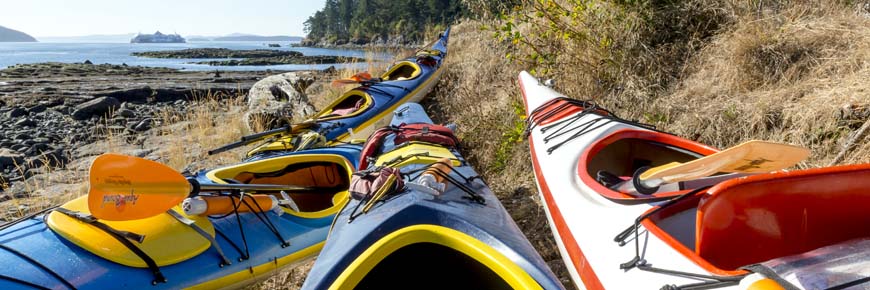
Planning your trip
Gulf Islands National Park Reserve
When visiting Gulf Islands National Park Reserve, you are in an area where rescue services and medical assistance may take time to reach you in case of an emergency. Ensure that you have the level of training and experience necessary to take responsibility for your safety and the safety of your group. To get you started, here are some trip planning resources:
1. Emergency contacts
Keep these phone numbers handy, or save them on your cell phone for easy access.
- Police, Fire, Ambulance: CALL 911 (indicate that you are calling from Canada)
- Park Offenses or Emergencies: 1-877-852-3100
- Marine Distress VHF: Channel 16
NOTE: Carry a marine radio if you are planning activities on the water.
Cell phones may not work at all locations in the park due to a variety of environmental factors and your provider’s coverage area. Check with your cell plan provider regarding your coverage. You may pick up a US-based service at some locations. So ensure that 911 operators know you are calling from Canada.
2. Weather
Research the weather and current forecasts before your visit to better plan your activities, itinerary, clothing and food choices. As is the case everywhere else in Canada, local weather varies greatly depending on the season. On the West Coast, it can also vary according to the time of day! Click here for the current weather forecast.
| Months | Average maximum daily temperature (°C) | Average monthly rainfall (mm) |
|---|---|---|
| January | 6.9 | 121.8 |
| February | 8.4 | 98.8 |
| March | 10.5 | 75.8 |
| May | 16.6 | 36.5 |
| June | 19.3 | 32 |
| July | 21.9 | 19.5 |
| August | 22.0 | 23.9 |
| September | 19.4 | 30.4 |
| November | 9.5 | 144 |
| December | 6.9 | 138.3 |
3. Travel with a partner.
4. Always carry extra water and stay well hydrated.
Potable water is only available at drive-in campgrounds (SMONEĆTEN (McDonald) and Prior Centennial).
No water available: Please be advised there is no water available at our backcountry locations and on Sidney Island (Sidney Spit). Visitors must bring enough water for their party for the duration of their trip.
5. Important Bulletins
Check the Important Bulletins as there might be a closure, safety warning, fire ban or other information that could affect your visit.
6. First Aid
Know first aid skills and carry a first aid kit with you.
7. Trip Plan
Draft a trip plan and leave it with a responsible friend or family member. Details should include:
- destination
- departure date
- expected return date
- planned route
- names of travelling partners and their emergency contact information
- who to call if you do not return as planned
8. Proper Outfitting
Ensure you are properly outfitted before heading to the park. Your choice of clothing and equipment can significantly affect your comfort and safety. Ensure clothing and equipment will be adequate for local conditions and your planned activities.
- A quick web search will offer up plenty of local operators who rent good quality gear.
- Anyone planning a water-based or marine visit needs to be particularly prepared.
- To find checklists and safety tips for a variety of activities, check our activities page.
- Mariners should check marine conditions and stay tuned to weather and marine condition updates throughout your trip.
-
AdventureSmart, a national program dedicated to encouraging Canadians and visitors to Canada to “Get informed and go outdoors.”
9. Facilities and Services
Gulf Islands National Park Reserve offers a wide variety of docks, mooring buoys, campgrounds and trails. To see where each of these is located, download our Visitor Guide.
10. Be aware that traditional hunting occurs by First Nations in the park reserve.
PUBLIC NOTICE: A portion of Sidney Spit is closed to the public annually from November 1 to the end of February to facilitate traditional hunting by Coast Salish First Nations.
Consider wearing bright colours, particularly in the winter. For public safety reasons, if you observe people hunting in the park, please contact Parks Canada at 1-877-852-3100.
Parks Canada’s Role in Public Safety
Parks Canada cooperates with a number of federal and regional agencies responsible for public safety, including the Canadian Coast Guard, National Defence, Royal Canadian Mounted Police (RCMP), and local fire and ambulance services. Click here for more information on Parks Canada’s national safety program.
- Date modified :